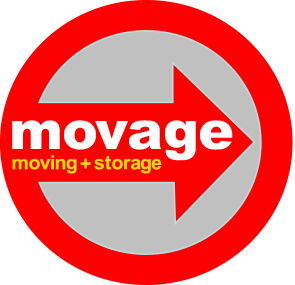Moving Check List
As one of the finest moving companies NYC, we provide you with a seamless relocation experience!
GET A FREE QUOTE
MOVAGE International Moving Checklist
With the help from MOVAGE international and this easy to follow moving checklist, you’ll be on your way to the most relaxed move you’ve ever made! Feel free to call us with any questions or requests. We recommend printing it and keeping it on-hand throughout your entire move.
2 months before your moving day
[ ] Research moving companies that provide international moving service. Make sure that they are licensed, fully insured and bonded. Some forwarders are just brokers, and this is something that you should try to avoid. Make sure that the company has their own equipment and movers, and that they are not subcontracting your job. Compare prices, and find one that fits your needs and your budget.
[ ] Consider a small airfreight shipment of essential items that you would like to be there on your arrival.
[ ] Apply for visa(s) and working permit(s), if applicable.
[ ] Make sure your passports are valid and have at least 12 months remaining before they expire.
[ ] Is your company relocating you for work? If so you should verify what expenses and responsibilities are theirs and which are yours.
[ ] Check on the quarantine laws regarding taking pets to your new destination.
[ ] Call Movage International and set an appointment for one of our relocation coordinator to perform a visually survey of your home/apt and prepare a moving quote. Make sure you consider the pick-up time frame and delivery details in your planning (date, location, and budget).
[ ] Change of address notifications for any accounts that you wish to maintain (credit cards, etc.)
[ ] Cancel insurance policies, and check if you can get any money back for the period after the cancellation.
[ ] Order contact lenses or spare glasses. Make a list of things to take, to leave behind and to buy.
[ ] Find out whether your current bank has an overseas branch and if it can handle your future needs.
1 month before your moving day:
[ ] Do you want to do packing of the boxes yourself and keep your move little more cost-effective or will you have it done by our experienced packers? Our relocation coordinator will be happy to discuss full packing services with you.
[ ] Sell things that you don’t need or can’t take with you. Take out advertisements for things to sell, have a garage sale, and donate things to charity.
[ ] Schedule cancellation of services for all utilities: phone, electricity, water, cable/satellite, gas, etc.
1-2 weeks before your moving day:
[ ] Discuss your insurance needs with your relocation coordinator and complete your insurance valuation form.
[ ] Decide what to do with house plants and make arrangements for pets.
[ ] Isolate your keys, wallet, passport, plane tickets and prescription medications. These items should travel with you.
[ ] Deal with anything that needs to be picked up or taken back (e.g., dry cleaning, library books, videos, etc.)
[ ] Contact your relocation coordinator to confirm the moving date, as well as to notify your mover of any last minute details or changes.
Your shipment should not include the following:
Internal combustion engines or small outdoor equipment must be drained of all fluids (gasoline, diesel and/or motor oil) prior to loading.
Flammables:
- Ammonia
- Bleach
- Charcoal briquettes
- Cleaning fluids
- Gasoline
- Insecticides
- Kerosene
- Lamp oil
- Lighter fluids
- Matches
- Motor Oil
- Oil stains for wood
- Paint
- Paint or varnish remover
- Petroleum products
- Petroleum products
- Poisons
- Propane tanks
- Propane or other gas
- Turpentine
- Varnish
Explosives:
- Ammunition
- Black powder
- Blasting caps
- Dynamite (plastics or any similar explosives)
- Explosives auto alarms
- Fireworks
- Fuse lighters
- Igniters or primers
- Firearms
- Matches
- Propellants
- Propane tanks
- Signal flares
- Smokeless powder
- Souvenir explosives/instruments of war
- Spear guns having charged heads
- Toy propellant or smoke devices
Perishables:
- Frozen food
- Open or partially-used foods
- Plants
- Produce
- Refrigerated foods
- Food in glass jars
Compressed gases:
- Engine starting fluids
- Fire extinguisher
- Gases used in welding
- Scuba diving tanks
- Aerosols
- Chlorinated hydrocarbons in decorative lamps
- Any other material termed combustible, corrosive, and/or flammable
